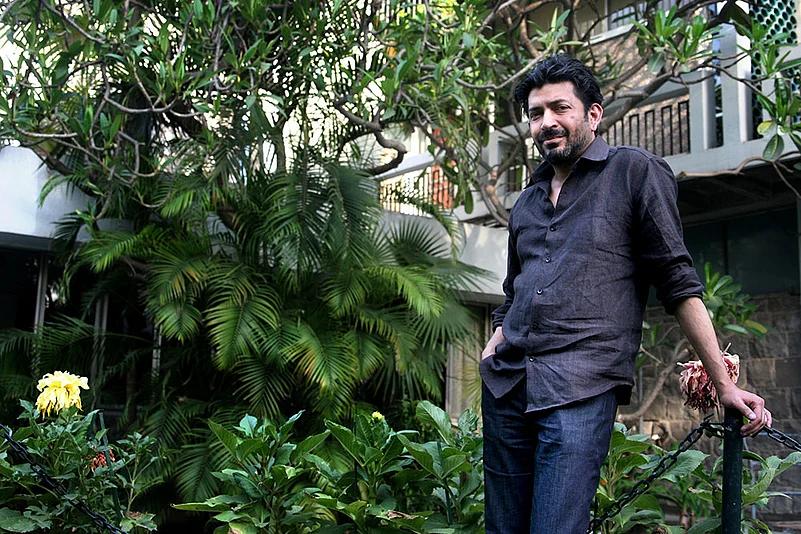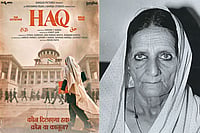Siddhartha Mukherjee’s Pulitzer Prize-winning first book on cancer, The Emperor of All Maladies, was a medical book, a literary work and a thriller all rolled into one. Just when it seemed it would be tough to surpass, the top oncologist has come up with another stunner, this time on The Gene. The book traces the history of genetics in a manner only Mukherjee can achieve, and raises many disturbing questions about the future of the human race. Would humans soon be not like as we know them? Mukherjee answers this and other questions in a telephonic conversation from Massachusetts with Satish Padmanabhan. Exerpts:
All along the book, it seems that genetics is interfering with the natural order, the way we were meant to be, with all our infirmities, our diseases. Is that what you think?
It’s more complicated than that. There are some great advantages that can come about of these technologies, the ability to eliminate diseases that have extraordinary suffering and it is obviously something that we are looking at. What are we really selecting for, who is the right kind of human, and these are the complicated questions. And now is the time to find answers to them, before the whole world goes ahead starts using these technologies.
As you describe, even in 1912, at the first eugenics conference, there were chilling presentations by the Germans on Racial Hygiene, and the Americans to ‘eliminate defective strains’. Would you say the great advances we have made in this area is now coming to a head?
Yes absolutely, it is coming to a head. But in that conference in 1912 when it took place in London, these presentations were not seen as chilling at all, people thought it was a great way forward. It was only in the 1930s and the 40s when the technology began to be perfected by the Nazis, that people woke up and said wait a second, we have unleashed something out of the Pandora’s Box. One example from the book, for instance, is gender selection. It has been going on for so long but it’s hidden under the mat, nobody wants to talk about it. But I would say gender selection is really a eugenics project, or rather a dysgenics project. So, yes, things have come to a head but they are also happening in a hidden way, in a way that is not obvious. Once you read the book you will find out that the way you think about these projects, of gender selection or perfecting the gene pool, all of a sudden becomes quite different.
There is the moral question that the book raises about what the future holds—to produce perfect babies—may lead to sharp inequities between those who can afford it and those who can’t.
Absolutely, it is a really big question as to how the rich can afford and the poor cannot in gene selection. So, are we going to make a new class of species that are based on the weaknesses of the poor?
Are we very close to what science fiction has been talking for a while now, of a perfect human being?
No, we are not very close. But with technology what happens is that you come to a point when you realise in principle—I must emphasise, in principle—we can select what sort of change we desire in our embryos. In principle, we can change the genetic constitution of a human embryo. None of this has been done, none of this is likely to be done for a while, and may never be done. I think we will have strong external barricades against this idea. But we have come to the point in technology where it is no longer just an idea, it is in the realm of possibility. That’s where we are now.
So sometime in the future, say in a hundred years, would the human being be not like how we know them?
A hundred years is a very short time. I think there will be two forces that will be driving; one, the natural forward moving force of evolution that’s acting on all of us all the time. It’s very slow moving, we don’t even realize it’s happening all around us all the time and in all organisms. Now, what we are entering is evolution directed by human beings that can be very fast moving, that kind of technology will become more prominent. We are at the last stage when you actually start changing the genome in a way that it changes the genetic information. The first non-human organisms, where such genetic changes have been made, are already here. There are plants where we have used the new technology to alter the single gene.
Isn’t it the first time ever in evolution that we are actively interfering with natural selection? Our technology is altering…
Yes, at least, with this level of power. The element of selection has always been around. Every time someone decides to have a baby, before you find a partner or a mate, what you are doing is not natural selection, but sexual selection. We select a certain set of combinations as against another set, that’s how natural selection works. But the difference is the power with which we are effecting these changes.
You know, if our textbooks in school had been written like how you describe the world of Gregor Mendel or Charles Darwin or Crick and Watson, we would all have become geneticists. Did you do a lot of fresh research for the book?
(Laughs): Oh, yes. In the case of Mendel’s monastery, I actually went to the monastery and spent time there. Obviously, you can’t put every place, you can’t name every name, or it will become like the textbooks you were mentioning. But many of the sites I describe, I have physically gone, I’ve been to those labs, have handled the instruments.
For most parts the book is very lucid. But do you think some portions, like say on DNA coding and its structure, it can get too technical for the lay reader?
I personally don’t think it gets technical. Even within that section it is very important to emphasize that they are all connected stories, the stories are never told in isolation. Sometimes they are very personal stories, like the Carrie Buck story. It’s through the eyes of this one woman and the idea was to abstract what it was like to be a woman in that place at that time. Some of the things which are there are not for just being technical, they are there because it is the minimum you need to understand in order participate in the bigger debate around it. Without understanding what the DNA does, how it is being regulated, it’s virtually impossible to take part in the debate about how the human race is changing. The payoffs for it all there in the third part of the book where we begin to use the concepts we have just learnt. We talk about race; how is it possible to talk about race without talking about our DNA?
Coming to the personal stories, it’s always difficult to write about madness in one’s family, which you do with clinical precision. How did the other family members take it?
Obviously everyone has not read the book but those who have it made them very emotional. There was such a lot of emotional intensity, it’s unbelievable. People are always realizing that this is everyone’s story. The book reminds them that this is not just a story of my family, it’s a story of their families too. I think the book changes the way you think about yourself and the way you think about people who are close to you and the way you think about a human being. So if the book can achieve that, I would feel very, very happy.
Some scenes are particularly tense. The scene at home you describe, for instance, when people have come to demand money from you father which his brother Jagu (who is schizophrenic) has borrowed from them, is so overwrought. These must have been particularly difficult?
Yes it is a brutal book, it’s exactly what someone said when they read it first. It is brutal and very honest. Those personal episodes threaded into the book are so strong that you have to use them with great discretion. It’s like some people say about painting the colour cobalt blue. If you overuse that colour the whole painting becomes blue. What’s interesting about the book is that the personal pieces are quite limited. They are only four or five personal instances in a 600 page book. But they have so much power that you have to use them very judiciously and they have to be used with emotional care. The other thing to be noted is that those personal elements are inserted in parts where the book gets overly scientific, so these are used to make the book come alive.
There are also many, many subtle things, you may not even realise it. I will give you one example. The section you mentioned about when creditors come knocking at my father’s house for the money borrowed by his brother, it’s a devastating moment for my grandmother, in which she says in the end ‘I will wash my womb’, which is a saying in Bengali. You don’t realise it then, but the next chapter begins with the idea of washing, then several chapters down, there is the scene of washing the cathedral. The point I am making is, there are many things threaded into the stories which are invisible.
In the chapter intros there is so much of the bard’s lines. Are you a Shakespearewallah?
(Laughs) I would ask you a counter question, who is in writing and is not a Shakespearwallah. He is part of our DNA.
A shorter, edited version of this appears in print



























